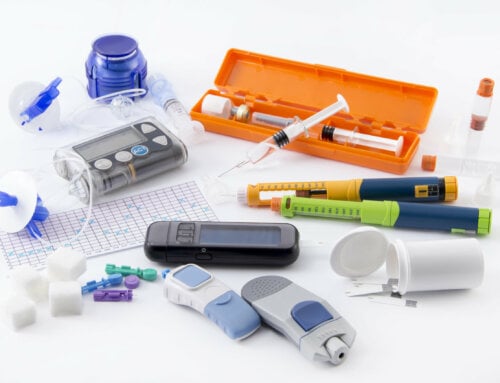When you feel sick or discover a rash, often the first solution that comes to mind is an over-the-counter medicine. People with type 1 diabetes should carefully select OTC remedies and be aware of possible contraindications. Discover the good, bad and ugly about over the counter Type 1 diabetes medicine.
- While many people have the misconception OTC medications are harmless this is not always the case. Certain OTC remedies can interact with your prescription medications. Always check with your health care team or dedicated pharmacist before using any new product.
- Read the labels when you choose an OTC medication. Some contain ingredients, including sugars that can raise your blood glucose levels. Others may add carbohydrates or calories to your daily intake. Make sure to include these calories and carbohydrates into your diabetes self-management plan. When in doubt contact your doctor to verify how to properly include an OTC medication in your current care schedule. Watch for ingredients such as sucrose, lactose, glucose and fructose. When possible select sugar-free products. Try to stay away from sweeteners such as mannitol or sorbitol which can cause diarrhea and dehydration.
- The preferred form of an OTC medication is a pill as it usually contains little or no sugar or alcohol. Try to avoid products that contain alcohol which increases the amount of calories in the product and can also boost your blood sugar levels.
- Do your best to stay away from products with decongestants such as epinephrine, ephedrine, phenylpropanolamine, phenyledphedrine and pseudoephedrine. These drug ingredients can raise your blood sugar levels. Many decongestants have a warning label for people with heart disease and high blood pressure. People with diabetes are more prone to developing these health conditions. Always talk to a physician before using any type of decongestant. Often a doctor will recommend a saline nasal spray or medicated neck and chest cream to relieve congestion. Even using steam from the shower may do the trick.
- OTC medications are meant for temporary relief and you should always seek the advice of your physician if your symptoms last for more than a couple of days. The occasional use of pain relievers such as ibuprofen and acetaminophen can help treat mild fever and pain. Large doses of aspirin may lower your blood glucose and ibuprofen can lead to stomach upset. A small daily dose of aspirin may help reduce the possibility of cardiovascular disease. Keep in mind aspirin should never be taken with ibuprofen. Always follow the package guidelines when you take pain relievers and check with your doctor if you have any questions, doubts or reactions.
- When you have a fever or feel sick your blood sugar levels may rise. Test your blood sugar regularly and reach out to your doctor if you wind up sick. Visit a doctor right away if you have a high fever, are unable to eat or your blood glucose level remains over 250 mg/dL for more than 24 hours.
- Certain OTC medications can be helpful for people with diabetes. Using a specially formulated diabetes foot cream may reduce dryness, cracks, blisters and calluses. Apply after bathing or cleaning your feet. Avoid the areas between your toes where fungus can develop and make sure your feet are completely dry before applying a moisturizer. Always keep your feet clean, dry, and moisturized to help avoid foot problems often associated with diabetes and neuropathy.
- Talk to your physician about taking general multivitamin supplements each day. Vitamin C can help ward off colds for people with diabetes who have a compromised immune system. Ginseng may boost your energy if you experience fatigue. Psyllium fiber may reduce LDL cholesterol. Low vitamin D levels can be associated with insulin resistance. Alpha-lipoic acid (ALA) might be recommended to manage the symptoms of diabetic neuropathy. Never take any OTC remedy or supplement without consulting with a physician first.
Always be aware of the ingredients and possible contraindications when you choose OTC medications. Talk to your doctor and pharmacist about possible side effects. Remember over-the-counter products are still medications and should be administered accordingly.






Leave A Comment